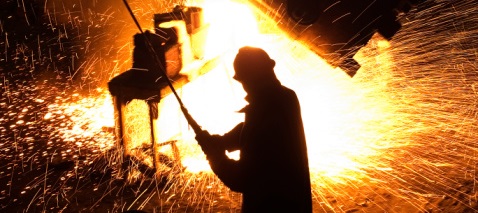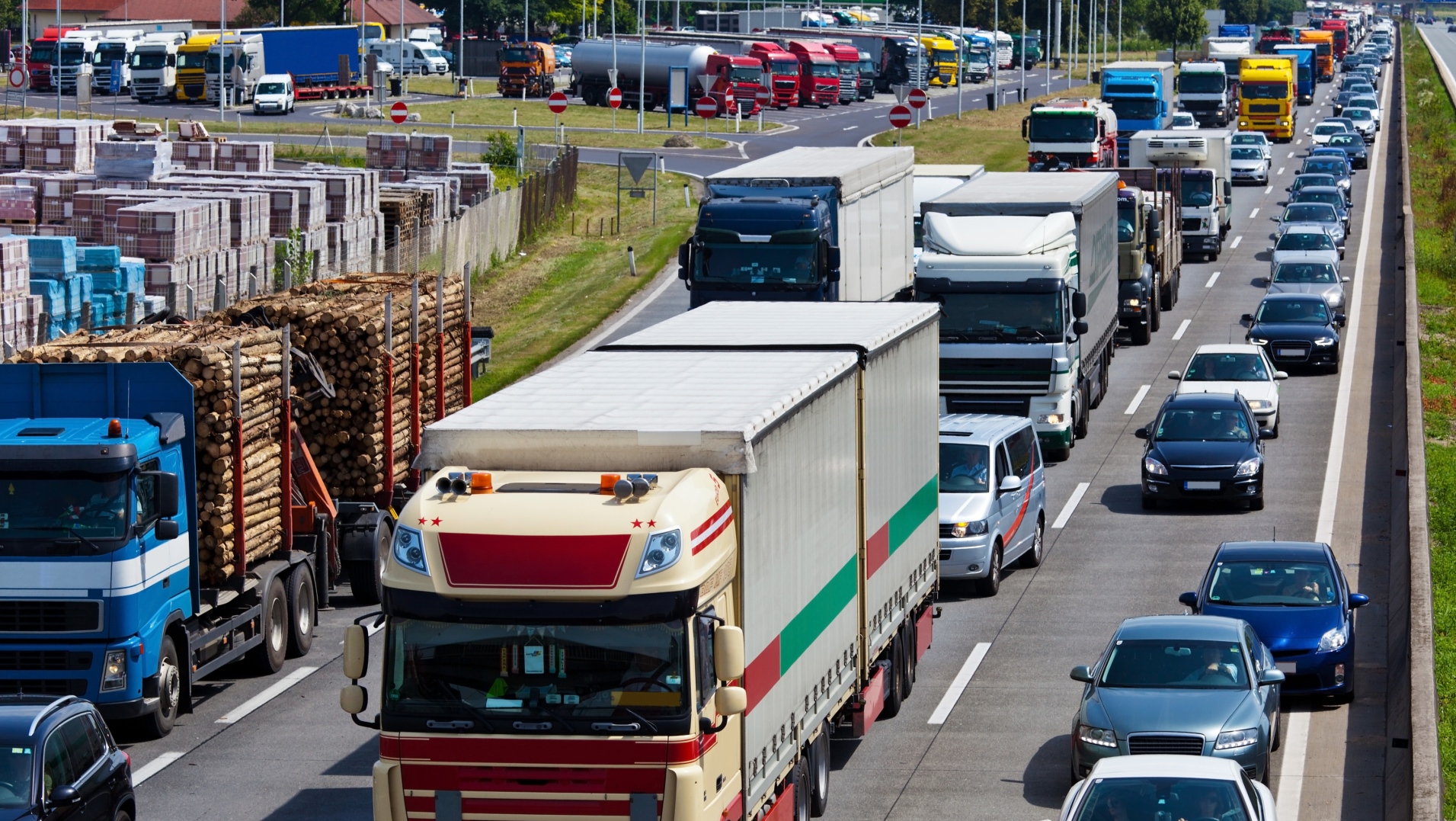Brexit: Unite’s fight for jobs
Unite reps on European Works Councils (EWCs) are convening for a special two-day Unite conference in Esher today (February 9) to discuss the union’s campaign on Brexit to defend jobs, rights and investment.
Unite has more EWC reps — and therefore more international connections — than any union in the UK, with reps working in large multinational companies that range from Ford to EasyJet to Barclays, which is why Unite is demanding a seat at the table in future Brexit negotiations.
The reps will hear from shadow Brexit minister Keir Starmer as well as from Unite general secretary Len McCluskey, Unite assistant general secretary Tony Burke and Unite international director Simon Dubbing, among others.
Follow our rolling coverage of the conference below as reported by Ryan Fletcher, live in Esher:
And that’s a wrap for today (4.05pm)
Join UNITElive tomorrow morning as Unite’s EWC conference continues. Unite general secretary Len McCluskey and Shadow Brexit secretary Keir Starmer will address the delegates.
‘Another European project’ (3.47pm)
Patrick Correa, international secretary of the French union confederation FTM-CGT, is now speaking.
He says that the EU has to accept much of the blame for Brexit.
“This project is no longer the citizen’s one. It’s big multinationals’ and the great financial interests’ project since the fall of the Berlin Wall.”
He says that France would vote to leave the EU if they had a referendum at this time and that Brexit was not a surprise for the French and that many people were keen for that to happen – though not for obvious reasons.
“The reason is not that they no longer want the United Kingdom in Europe, nor even the dismantling of the European Union,” he said. “No, they hoped that this shock would make it possible to reorient the European project in order to place citizens and workers at the heart of it.”
Their aim has failed, Correa says and now rather than looking to reshape a more equitable Europe political leaders want to nail down Brexit and carry on as normal. This bodes ill for European and UK workers, he says.
“To rebuild Europe, citizens and workers must be listened to and respected,” Correa says. “It is more than urgent to put an end to the workers’ competition and the austerity policies that break our public services, our jobs, our wages, and degrade our living and working conditions.”
He believes that this could happen with Britain included despite Brexit.
Correa says, “I am not even sure that Brexit will take place and what form it will take. The only thing I am sure of is that we have an obligation to work together, to converge together, to fight together for another European project.”
If that doesn’t happen than the entire European project will fail, he says.
Germany not looking to punish Britian (3.12pm)
Andreas Bodemer, EU liason officer for German company IG Metall, has now taken the podium.
Brexit will be a lose-lose for the German and British economy, he says. “We must seek a pragmatic solution on both sides of the channel that protects workers.”
He says the German people feel rejected and are of the opinion that if Britain “wants to leave then it should leave” but the German political class are not looking to punish Britain.
He says that Brexit is an important issue but that it is not top of the agenda for Germany – especially given the rise of Donald Trump.
IndustriALL GS: ‘A more social Europe’ (3.08pm)
Conference has now started again.
Unite international director Simon Dubbins is introducing Patrick Correa, International secretary of the French union confederation FTM-CGT, Luc Triangle, general secretary of the umbrella trade union federation IndustriALL and Andreas Bodemer, EU liason officer for German company IG Metall.
Triangle is the first to speak and says Brexit has put the future of the EU at the forefront.
“We are at a crossroads and the Brexit negotiations will be decisive not just for Britain but Europe as well,” Triangle says.
From a generalised European perspective he says the redlines are clear — the single market depends on the four pillars of free movement. They are the free movement of capital, goods, services and people.
Theresa May will not get a deal in which she will get access to the single market while closing the borders. Such a deal would spell the end of the EU.
He says that people in Europe don’t blame the “little majority” who voted to leave and that the concerns and fears that prompted the vote also exist in Europe as well.
That is because the EU has been too long dominated by neo-liberal policies that leave ordinary working people behind and needs to turn towards a more social Europe.
Triangle calls for British and European trade unions to stick together because their aims are ultimately the same. He says that British industry needs access to the single market and EU research and funding to thrive and that IndustiALL will be calling for that along with Unite.
He ends by calling for members to fight the rise of xenophobia and racism across Europe and Britain.
EWCs’ future (2.25pm)
A delegate from the car industry is worried about the future of European Works Councils. He says that his boss has said British employees would be “affiliated members” on EWCs.
He expresses concern that this sounded like something that could very quickly be taken away “if we fell out.”
“We don’t want to be affiliated members, feeling like we can’t speak out because of the threat of having our place at the table taken away,” the delegate said. “We need to push against it.”
Conference has now paused for a break and will return shortly.
Single Market worries (2.05pm)
Unite international director Simon Dubbins is now finished and the floor is open to delegates.
A Toyota rep says that members are worried about the next investment cycle because of the UK coming out of the Single Market and is interested in building stronger ties with trade bodies who feel the same way.
Unite assistant general secretary Tony Burke replies that Unite is and has consulted with a number of trade bodies across sectors and that they have had an input in the union’s manufacturing strategy.
“There’s very little difference between ourselves,” Burke says. There will be even more collaboration in the future, he states – especially in calling for access to the Single Market and against a hard Brexit.
Dubbins: Unite will fight ‘bargain basement Britain’ (1.48pm)
Dubbins says there is a “reordering” of the world going on. “It is being redivided and carved up. We are living in historic times” that pose massive risks to UK workers’ jobs and rights. The potential to turn Britain into “bargain basement Britain” that is run for the rich and exploits workers is very real.
It is vital that doesn’t happen and Unite will use all its power to prevent it, says Dubbins.
Dubbins: ‘Far-right on the march’ (1.36pm)
Brexit has also cut through political parties, Unite international director Simon Dubbins says, causing a change of government directly after the referendum and confusion and disarray in the Labour party.
He says we must recognise that we are now in the hands of “very nasty” far right government that has been propelled to power after the vote to leave.
The international political repercussions are huge, say Dubbins. Far right parties are on the march across Europe and have been emboldened by Brexit.
He is now speaking about Donald Trump’s election and says that nationalism and racism seen in that election was also present in EU referendum.
Many people made protest votes due to their disillusionment, Dubbins says, and have looked to the far right for the answers. He references similar movements in France, Germany and Holland.
Unite’s Simon Dubbins: Brexit ‘uncharted water’ (1.29pm)
Unite international director Simon Dubbins opens the conference and welcomes the EWC reps.
“I don’t need to tell you how important EWCs are,” he says.
Dubbins says that we are in “uncharted water” in Brexit.
He is speaking about the overall impacts of Brexit. Dubbins says that the EU referendum has caused massive disruption and exposed divisions within society — “It has sent a shock wave through Britain, Europe and world.”
Dubbins mentions opposing EU stances between the old and young, urban and rural populations, the affluent and the less well off, white and ethnic minority people and between England, Scotland and Northern Ireland. He likens it to a shattered window screen and says the division is unprecedented in UK history.
Typifying the worst aspects of this is the “spike in hate crime after the referendum and they have still not returned to normal levels.”
EWC facts (12.15pm)
Before things get started here are some facts on why EWCs are so important:
They give representatives of workers from all European countries in big multinational companies a direct line of communication to top management.
They also make sure that workers in different countries are all told the same thing at the same time about transnational policies and plans.
They give workers’ representatives in unions and national works councils the opportunity to consult with each other and to develop a common European response to employers’ transnational plans, which management must then consider before those plans are implemented
Welcome (12.07pm)
Welcome to today’s live blog from Unite’s European Works Council conference at the lovely Esher Place in Kent.
The conference will be focusing on the upcoming Brexit negotiations and in particular their implications for EWCs and employment law.
As Britain leaves the EU there are concerns that British workers may not have access to EWCs – impeding their voice on international decisions that can affect the UK.
There are also worries about UK employment laws which are currently underpinned by EU legislation.
Although Prime Minister Theresa May has promised to transfer protections using the Great Repeal Bill, loophole “Sunset Clauses” mean there is the potential that over time they can be watered down or scrapped altogether without Parliamentary say.
Some Tories – such as Priti Patel – have already expressed their wish to scrap a number of workers rights enshrined in EU law.
Along with around 100 delegates, today’s panel will include:
Luc Triangle, General Secretary of IndustriALL Europe Andreas Bodemer, EU Liason Officer, IG Metall Patrick Correa, International Secretary FTM-CGT, and Unite assistant general secretary Tony Burke.
Tomorrow Len McCluskey and Shadow Brexit minister Kier Starmer will also join the conference.
 Like
Like Follow
Follow


